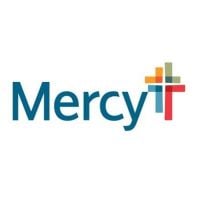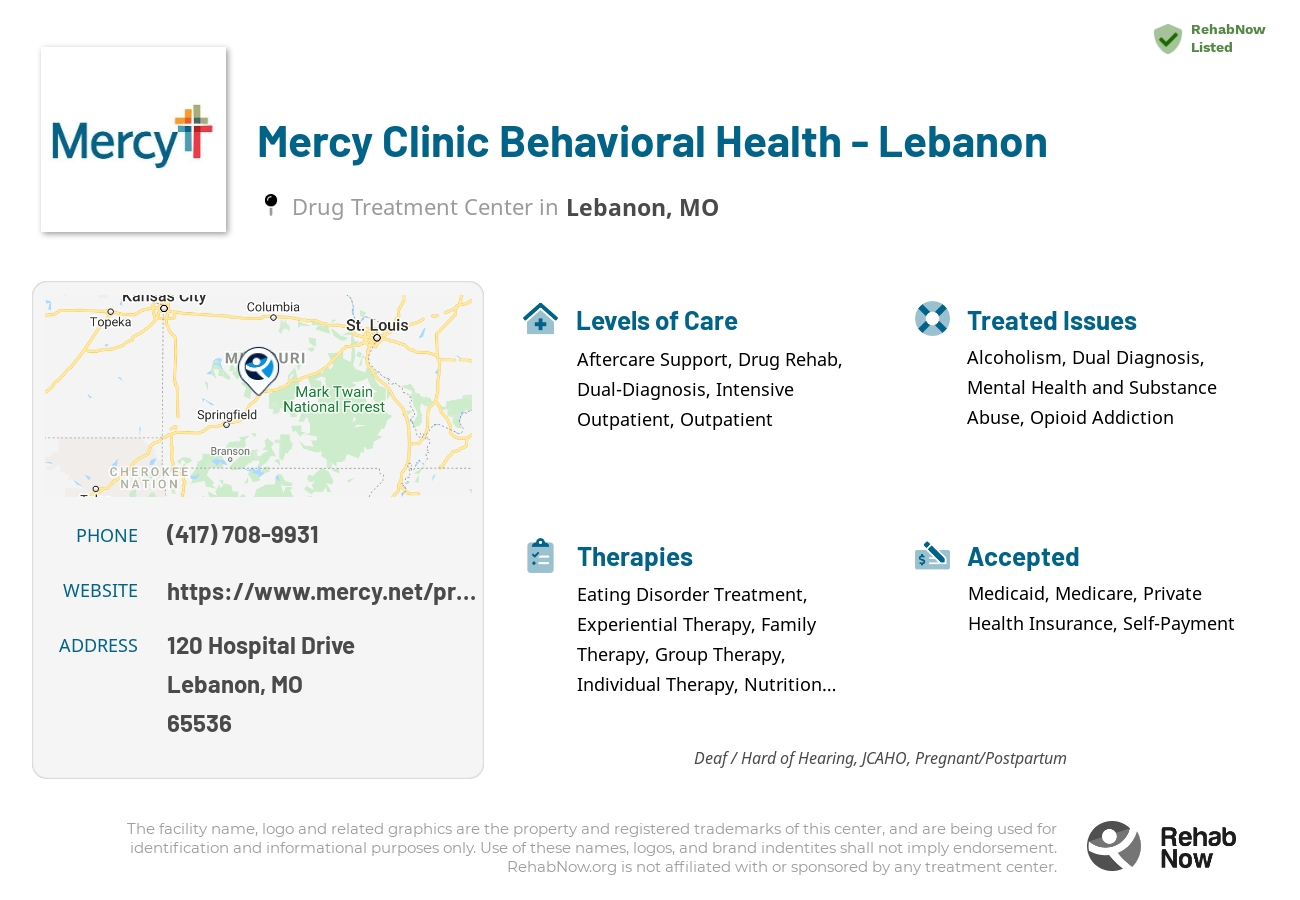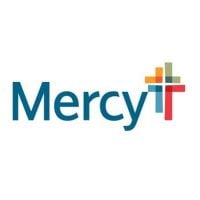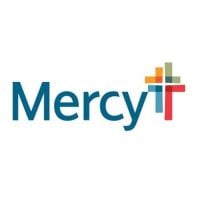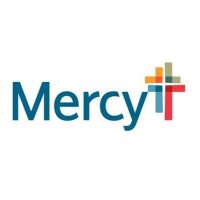Mercy Clinic Behavioral Health - Lebanon
Drug Rehab Center in Lebanon, Missouri
Mercy Clinic Behavioral Health - Lebanon in Missouri offers specialized mental health and addiction care services, including treatment for alcohol and drug addiction, dual diagnosis, opioid addiction, eating disorders, and substance abuse, using evidenced-based practices and a range of levels of care. They provide various treatments and methods, access to case management and health education services, and accept private health insurance.
About Mercy Clinic Behavioral Health - Lebanon in Missouri
Mercy Clinic Behavioral Health, nestled in Lebanon, Missouri, stands out for its comprehensive approach to addiction and mental health issues, catering to a diverse age group from children to senior adults. This clinic is distinguished by its dedication to education, prevention, and tailored treatment services, ensuring a holistic path to recovery for individuals grappling with substance abuse and mental health challenges.
Accredited by JCAHO, Mercy Clinic Behavioral Health - Lebanon underscores its commitment to high-quality care standards. The clinic's affiliation with Mercy Behavioral Health expands its resources and capabilities, providing patients with a robust support system and access to specialized programs designed to address the unique needs of each individual.
- Diverse Age Group Support: Offers tailored services for senior adults, adults, adolescents, and children, ensuring age-appropriate care.
- Comprehensive Treatment Options: Utilizes a variety of evidence-based practices including cognitive behavioral therapy and medication-assisted treatment.
- Specialized Programs: Focuses on a wide range of issues from alcohol and drug addiction to dual diagnosis and eating disorders, with levels of care that include detox and outpatient services.
Mercy Clinic Behavioral Health - Lebanon specializes in addressing alcohol and drug addiction, opioid addiction, dual diagnosis, and eating disorders among other substance abuse issues. Employing a mix of treatment methods such as individual and family therapy, nutrition therapy, and 12-step facilitation, the clinic offers a spectrum of care levels to meet the varied needs of its patients.
Genders
Ages
Modality
Additional
Accreditations

JCAHO
Conditions and Issues Treated
Many people need to recover from substance abuse to live a healthy life. In the end, if you can get through all the steps: detoxifying your body, rehabilitation after some time or when needed (depending on the type), and recovery while also receiving therapy support throughout the process, it can be worth it.
A detoxification center is a common place to start the recovery process from substance abuse. With your body and mind restored, you can continue to heal without the lingering effects of drugs.
Many people who struggle with opioid addiction need to attend specific programs like methadone , Suboxone or Vivitrol clinics.
These types of programs will provide the patient with legal, prescription medications that can help them overcome their cravings for illegal opioids like heroin or fentanyl . If the patient has a chronic condition like Hepatitis C, they must undergo treatment before they can begin taking these medications.
Dual Diagnosis is a specific relationship between two or more disorders that have the same symptoms and can sometimes be treated together. This is used in the treatment planning process when dealing with drug addicts. Dual diagnosis can be viewed as a chronic medical condition that has comorbid psychiatric disorders.
Although addiction and a mental illness may have separate symptoms that are not easy to detect, they often go hand in hand. Many times, drug abuse is a direct result of the mental illness. In other words, treating the addiction will not resolve all of your issues. Unless you also treat the underlying mental illness, you will not be successful in achieving sobriety.
Levels of Care Offered
This center offers a variety of custom treatment tailored to individual recovery. Currently available are Aftercare Support, Detox, Drug Rehab, Dual-Diagnosis, Intensive Outpatient, Outpatient, with additional therapies available as listed below.
Detox refers to the progressive elimination from the body of toxins. The detox period depends on the form of addiction, the length of drug abuse, and the state of health. Under the supervision of medical practitioners, MAT detox based in Lebanon, MO requires the use of medications.
An intensive outpatient program is usually the first phase of addiction treatment. It provides relief for those who are addicted, but are not ready to commit to an inpatient setting. Typically, the patient lives at home and is able to work or go to school. IOPs consist of a daily 3 to 5-hour program, and there is a required number of hours per week. Most patients go to IOP between 20 and 40 hours per week. The patient attends group counseling and individual therapy throughout the duration of treatment. They also meet daily with their therapist to discuss how it’s going and where they are in the recovery process.
The goal here is to teach patients healthy coping skills, such as stress management and identifying thoughts and behaviors that lead to relapse. The implementation of these skills will be useful as the individual transitions into the next phases of treatment.
An outpatient treatment program is set up to help with alcohol or drug addiction, or a co-occurring disorder. The patient must attend the Missouri facility for their therapy and other programs but are able to return home each night. The frequency of mandatory attendance decreases after much of Mercy Clinic Behavioral Health - Lebanon‘s program is complete.
Aftercare is a term that’s used to refer to any sort of continuing care offered for a drug addict who has voluntarily entered a rehabilitation program. This type of care can be provided in several settings, including outpatient therapy sessions after the addict has completed an inpatient program. There are also 12-step support groups, such as Alcoholics Anonymous, which can provide additional help for addicts trying to stay sober.
Therapies & Programs
Individual Therapy is a critical component of addiction recovery. Therapists work with patients to identify the root of their addiction and figure out how to better handle the issues that led to them using drugs. Individual Therapy is the one-on-one session where people meet with their therapist. Individual therapy provides a safe space for people to open up and discuss personal and sensitive topics which they may not feel comfortable discussing in a group setting.
Family therapy will also help families realize that the addiction is not their fault. For many years, people blamed themselves for an addict’s behavior and felt that they had done something wrong. This is not the case. Addiction is a disease, and it can strike anyone, even if their life seems fine from the outside. It can bring a lot of shame to a family when they have an addict in their midst, but if everyone is open and honest with each other, then they can help everyone stay in recovery.
Group Therapy is utilized by drug treatment centers like Mercy Clinic Behavioral Health - Lebanon to provide the recovering drug addict with a platform to talk about their feelings and experiences. It also provides for an opportunity to learn from other addicts who have successfully overcome their addiction.
Group Therapy is employed in lectures, seminars, or discussion groups (the latter two are typically conducted as “therapy groups”). It is recommended that all group members be recovering addicts for this type of therapy to work (though it does not exclude others with lived experience).
Trauma therapy is a clinical process that helps individuals deal with mental stress often caused by traumatic events. It is generally done for children, teenage victims of sexual assault, and war veterans. The therapist helps the person identify, understand and work through the problem. This is done with the help of talking about it in group or one-on-one counseling sessions. Therapists use relaxation, role-playing, art, and music to help the person open up about what is bothering them.
Cognitive behavioral therapy is also a popular service for individuals living with addiction. This type of supportive treatment uses both one-on-one counseling and group sessions to teach addicts how to identify thoughts, behaviors and emotions that might increase their risk of relapse.
These professionals can help addicts develop coping skills for managing stress, improving self-esteem and overcoming triggers. They might also use behavioral therapy to help addicts learn how to avoid cravings and warning signs that could lead them back into addiction.
Therapy can be used as a step-down from inpatient treatment or as the primary method of overcoming an addiction. No matter which option is best for the addict, they will teach important emotional coping techniques, which can make it easier for addicts to get through the tough days.
12-Step Program is used by drug treatment centers to get addicts sober. The 12 steps typically begin with addicts admitting they need help. They will work through physical withdrawal symptoms, identify the problems that led to their addiction and learn how to resist cravings. It is often used as a part of an inpatient or outpatient treatment program and is frequently recommended by doctors.
Nutrition therapy has been used to help drug addicts for decades. Many early reports on addiction treatment indicate that some patients recovered from the “satisfying power of food”. For years, this phenomenon has been utilized as a treatment modality in eating disorders for adults, adolescents, and children. Specific nutrients have been identified that influence neurotransmitters associated with reward pathways of the brain.
Studies have shown that carbohydrate loading with complex carbohydrates to elevate serotonin levels was effective in treating bulimia nervosa. This approach prompted researchers to explore the use of this type of nutritional intervention in other disorders.
Nicotine replacement therapy treats nicotine addiction using external sources of nicotine, such as patches or gum to substitute for nicotine. This allows people trying to quit smoking to get their desired dose of nicotine without actually having to smoke cigarettes. The idea behind NRT is that by providing smokers with nicotine in forms that are not cigarettes, they may be more likely to quit smoking.
NRT has been available for many years now, and there is a wealth of evidence that shows that it helps people trying to quit smoking. There are several different types of NRT devices on the market now. Patients interested in quitting smoking should talk to their doctors about the best kind of NRT for them.
Patient Experience
Experiential Therapy at Mercy Clinic Behavioral Health - Lebanon
Experiential therapy is another form of treatment that helps addicts overcome their addiction. This type of service typically involves hands-on activities with the focus on physical experiences instead of emotions or beliefs.
Some examples include art therapy, equine therapy and music therapy. Each of these forms of experiential therapy can provide unique ways for addicts to channel their feelings and work through their demons. This type of therapy also allows addicts to develop meaningful emotional connections with others, which can prevent them from resorting to relapse as a coping mechanism.
Payment Options Accepted
For specific insurance or payment methods please contact us.
Is your insurance accepted?
Ask an expert, call (888) 674-0062
Mercy Behavioral Health Associated Centers
Discover treatment facilities under the same provider.
- Mercy Hospital - Behavioral Health in Saint Louis, MO
- Mercy Behavioral Health - Washington in Washington, MO
- Mercy Clinic Psychiatry - Festus in Festus, MO
- Mercy Clinic Sports Psychology in Ozark, MO
- Mercy Behavioral Health - Springfield in Springfield, MO
Learn More About Mercy Behavioral Health Centers
Additional Details
Specifics, location, and helpful extra information.
Lebanon, Missouri 65536 Phone Number(417) 708-9931 Meta DetailsUpdated April 15, 2024
Staff Verified
Mercy Clinic Behavioral Health - Lebanon Patient Reviews
There are no reviews yet. Be the first one to write one.
Lebanon, Missouri Addiction Information
Opioid-related overdoses in Missouri have been increasing steadily for the past three decades. In 2018, more than 1,130 people in Missouri died from opioid abuse. Methamphetamines and marijuana abuse have surpassed opioid abuse in Missouri. Missouri is the number 1 methamphetamine manufacturer in the country with more than 27 meth labs per 100,000 people.
The drug addiction issue in Lebanon, Missouri, is sadly serious. In fact, according to recent statistics, there are around 9,000 people in Lebanon who struggle with drug addiction. This constitutes around 8% of the population. Methamphetamine and heroin abuse is a serious problem in the area. Drug treatment centers in Lebanon, MO, offer a variety of programs and services which can help addicts recover from addiction.
Treatment in Nearby Cities
- El Dorado Springs, MO (77.0 mi.)
- Pacific, MO (117.0 mi.)
- Malden, MO (166.4 mi.)
- Springfield, MO (48.7 mi.)
- Florissant, MO (147.1 mi.)
Centers near Mercy Clinic Behavioral Health - Lebanon
The facility name, logo and brand are the property and registered trademarks of Mercy Clinic Behavioral Health - Lebanon, and are being used for identification and informational purposes only. Use of these names, logos and brands shall not imply endorsement. RehabNow.org is not affiliated with or sponsored by Mercy Clinic Behavioral Health - Lebanon.
